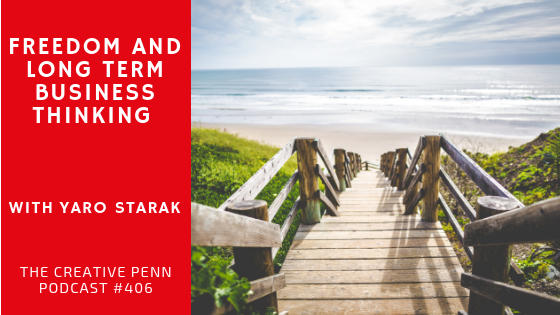What happens when you reach your goals around making a living with your writing? How do you take the next steps into freedom and long-term business thinking? In today's show, I interview Yaro …
Continue Reading about Freedom And Long Term Business Thinking With Yaro Starak →


